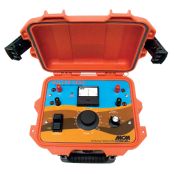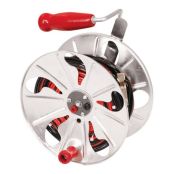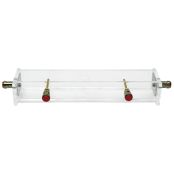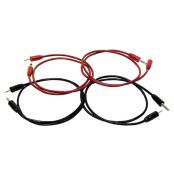Resistivity
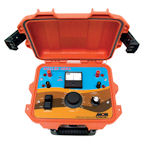
With a soil resistivity test, you can measure the volume of a soil sample to evaluate how conductive it is. Soil resistivity can vary significantly as you get deeper beneath the surface, and there can be major differences across lateral spans as well. That’s why your soil resistivity testing equipment needs to be able to measure resistivity across a broad lateral area and as deep as the water table.
With a Resipod resistivity meter — like the 38-millimeter device offered by Forney — you can take accurate and precise surface resistivity measurements. This unit has a four-point probe that’s fully integrated into the meter’s design, which allows you to conveniently conduct resistivity tests according to the Wenner method, the most common method for evaluating concrete and soil resistivity. The sturdy, waterproof housing makes this device the perfect on-site, non-destructive concrete resistivity meter.
We also have a soil resistivity meter for lab or field use that indicates the corrosion potential for structures buried in the soil. You can use this meter to determine the resistivity of soil or water. It comes with stainless steel plates, brass pins, and a wide-range, temperature-stabilized meter. It even includes a 12-volt battery and a handy shoulder strap.
Beyond meters, Forney also provides several accessories for your soil resistivity testing equipment. We sell clear plastic soil resistivity boxes for use with our soil resistivity meters, along with soil box lead wire sets and resistivity test reels. No matter what your needs are for soil resistivity measurement equipment, Forney can help you find the right solution.
- Soil Resistivity Meter
SKU: LA-3170
Soil Resistivity Meter with range 0.01 to 1.1 megaohm in 8 ranges with 10% overlap
- Resistivity Test Reel
SKU: LA-3173
Resistivity Test Reel for LA-3170 Resistivity Meter with 4 lead wires.
-
-
